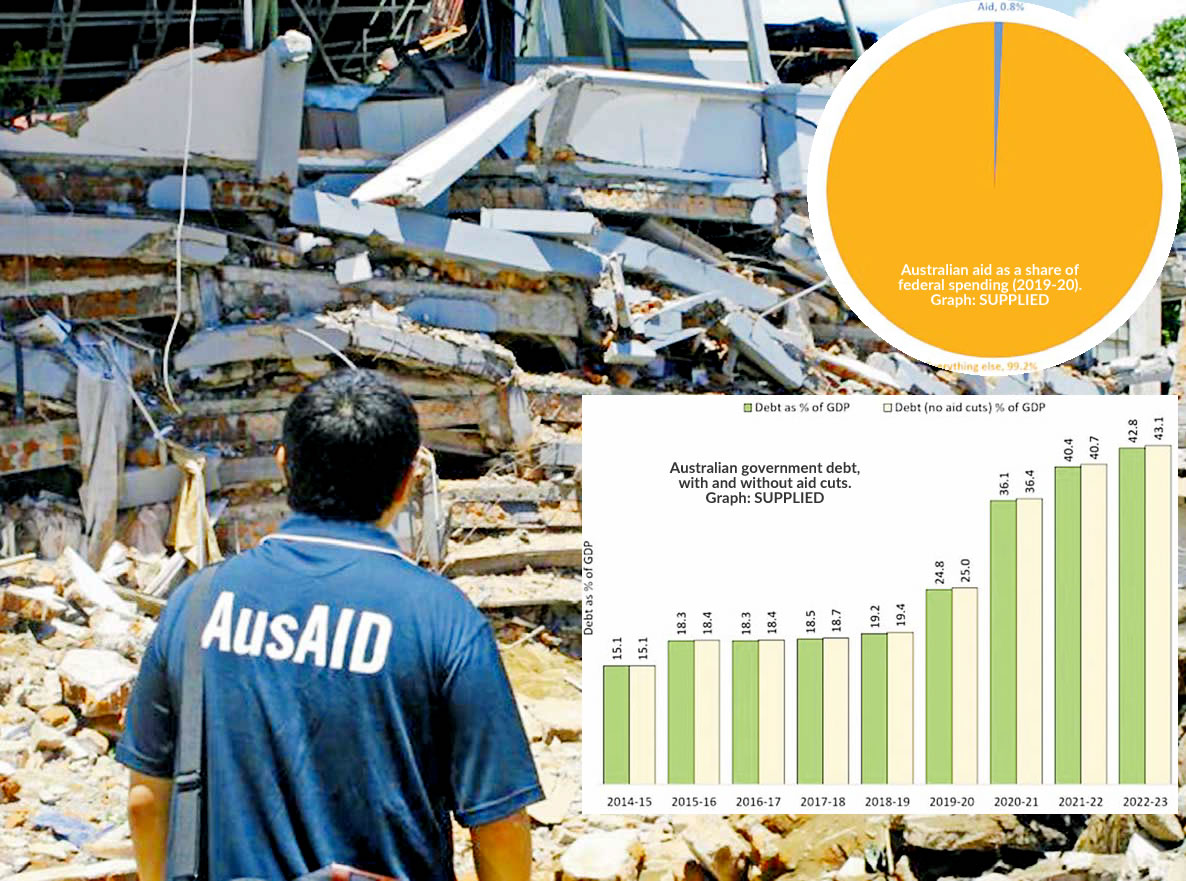AID — wealthier countries giving money to less fortunate ones for the sake of improving people’s wellbeing. What’s not to like?
Quite a lot, it turns out. Aid is the subject of academic jeremiads, stern critique from the very wealthy, and a surprising degree of public hostility.
Typically, the main objections to aid take one of three forms. Each is mistaken.
Let me explain. (I’m going to focus on Australia because I know the Australian data best, but everything I’m about to say is also relevant to New Zealand, as well as most OECD countries.)
Charity begins at home
This objection runs along the lines of “we have so much need here in Australia, before we spend money overseas we should take care of Australians”.
There’s an interesting philosophical debate to be had about how much countries should prioritise the wellbeing of their citizens over people overseas.
Real need exists in Australia, yet Australian poverty is not as severe or nearly as widespread as it is in the developing world. (Globally, more than 60 per cent of people live off less each day than could be purchased in the US with $10 in 2011.
In Australia, less than 1.5 per cent of the population is this poor. Given the severity of global poverty, there’s a strong case help should go where it’s needed most, regardless of borders.
Yet a case can also be made that proximity matters – we should help our compatriots first because we share a social contract with them.
In practice though, the philosophical debate is beside the point. The Australian government already devotes almost every penny it spends to taking care of Australians.
The chart below shows Australian aid as a share of federal spending. (You can access the data on the Australian Aid Tracker.)
In any given year, less than one per cent of Australian federal spending is devoted to aid. Compared to what it spends on itself, Australia devotes barely anything to helping people overseas.
Australia can’t afford it
The next objection is related to the first. It’s usually put as follows: “Australia is deeply in debt, it can’t afford to give aid.”
It’s true that Australian government debt levels are rising. But aid’s role in the rise in negligible. In the 2015-16 financial year, the government made the largest ever cuts to Australia’s aid budget.
Over the space of two years aid fell by about 20 per cent – a massive decline, even by international standards.
There were some fluctuations in following years, but the cuts weren’t reversed. In the chart I show two sets of bars.
One shows actual government debt as a percentage of GDP. In these bars, all the cumulative savings that came from Australia’s aid cuts are reflected in the measure of debt to GDP.
In the other series of bars, I show what would have happened if, instead of cutting aid, Australia had kept nominal aid levels as high as they had been in 2014-15. (The effect of trivial additional interest payments is excluded.)
Peer closely and you can see a slight difference. But, at its greatest, it’s less than half a percentage point.
That’s what Australia managed to trim from its debt with the biggest aid cuts ever. Aid is too small to have a material impact on Australia’s financial sustainability. (The chart, along with sources, and my calculations, can be downloaded at a hyperlink to this story on devpolicy.org.)
Aid doesn’t work
Sometimes the argument that aid doesn’t work is made very simply. In other instances it is teased out through the complex toolkit of econometrics.
When put simply, the argument runs as follows: “We’ve given over $3 trillion in aid since 1970, and people are still desperately poor. Aid doesn’t work”.
The logic has its appeal. After all, $3 trillion ($F6.29t) is a lot of money ($US3t, is my estimate, based on OECD data, of combined aid flows from OECD donors since 1970).
Yet when we take into account the population of the developing world, on average this is less than $US15 (F$31.45) per person per year.
Compared to need, aid flows have been underwhelming. What’s more, there has been considerable positive change in developing countries.
Extreme poverty has fallen since the 1990s. Life expectancy has increased. Aid hasn’t been the source of all the gains, but life is improving in meaningful ways, even in poorer countries.
It’s a mistake to conclude progress isn’t being made. It’s also a mistake, therefore, to conclude that aid has failed because the world is making no progress.
The econometric approach to arguing aid doesn’t work, involves – to simplify – comparing changes in the amount of aid that countries have received with changes in development indicators (usually economic growth).
At times, studies in this vein have found little or no evidence of aid helping. Yet at present, the best available econometric evidence suggests aid actually helps.
Econometrics aside, it’s easy to find examples of aid projects that have helped. Even if you take a pessimistic reading of the econometric evidence of the efficacy of aid as a whole, at times aid clearly helps people.
Australia’s charity already begins at home. It can afford to give. And aid can work. The three big arguments against aid are mistaken.
It would be helpful if aid’s current critics acknowledged this. If they did, we could all move onto more fruitful terrain. In particular, while aid can help, not all aid works equally well.
Australia needs more debate about how to make aid as beneficial as possible. If aid’s critics got past boilerplate criticisms, they might play a useful role.
This article appeared first on Devpolicy Blog (devpolicy.org) from the Development Policy Centre at The Australian National University. * Terence Wood is a research fellow at the Development Policy Centre. His research focuses on political governance in Western Melanesia, and Australian and New Zealand aid. The views expressed are the author’s and do not necessarily reflect the views of this newspaper.


